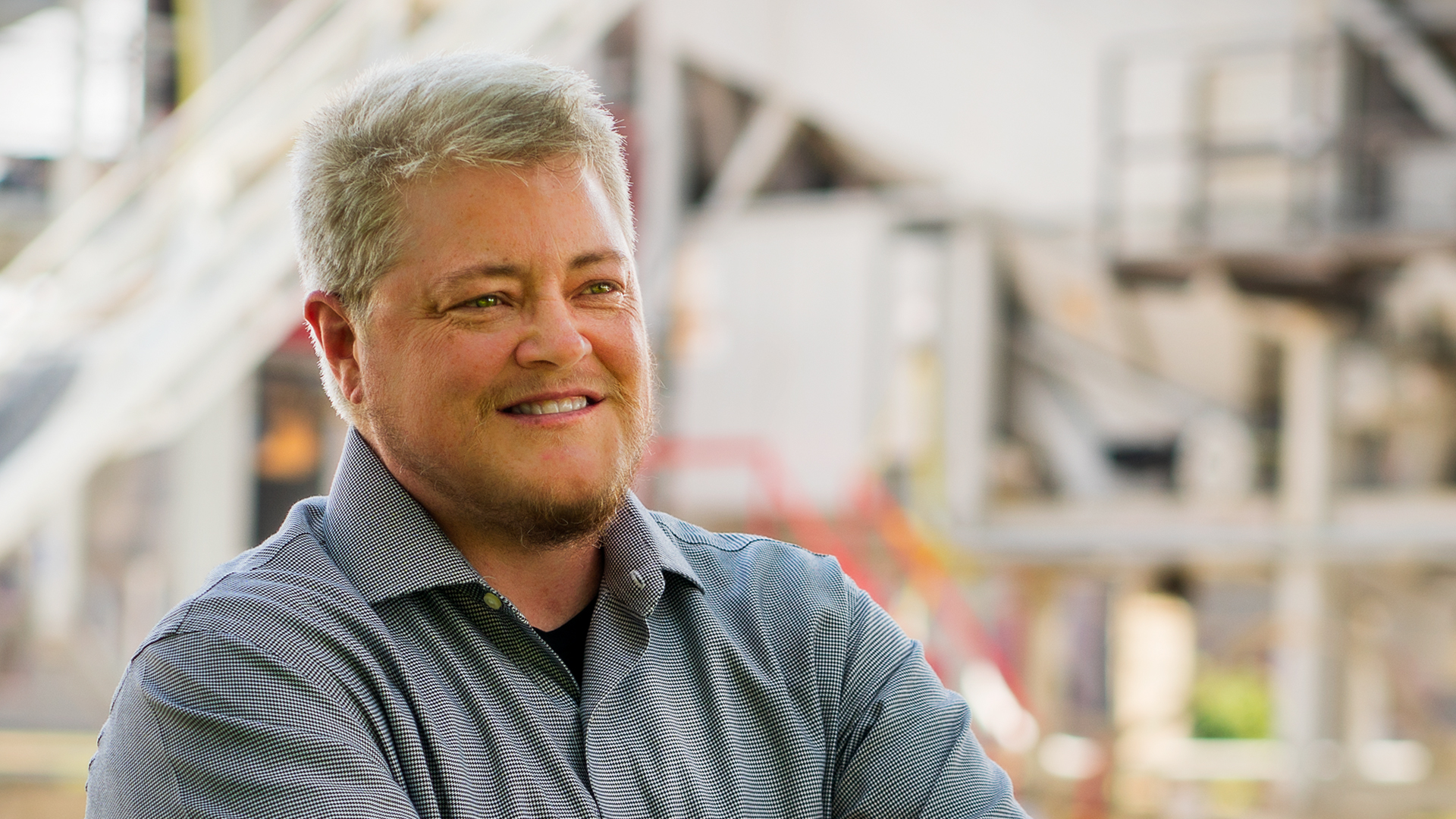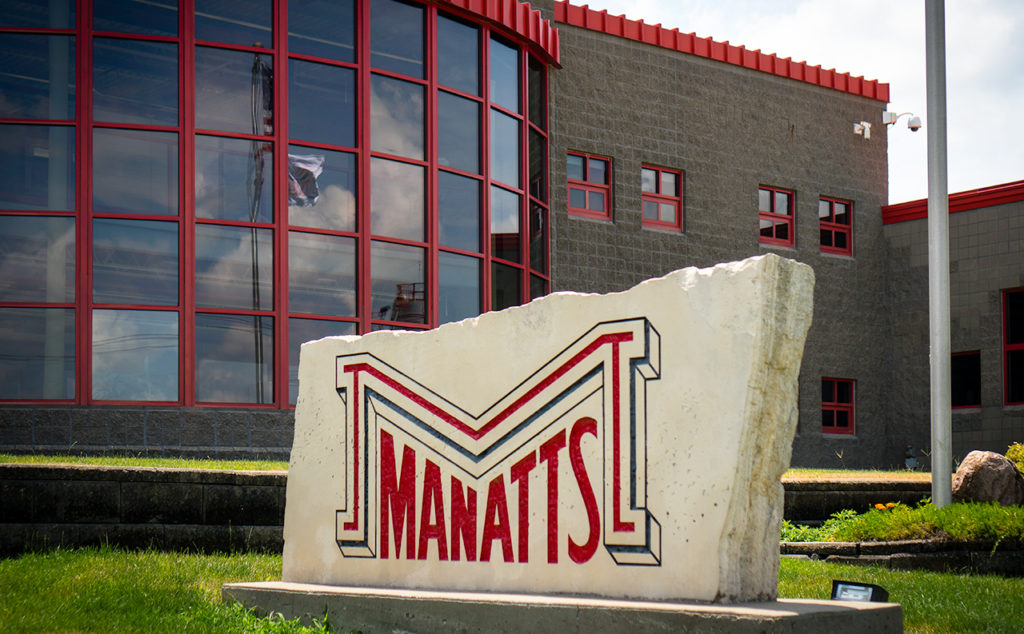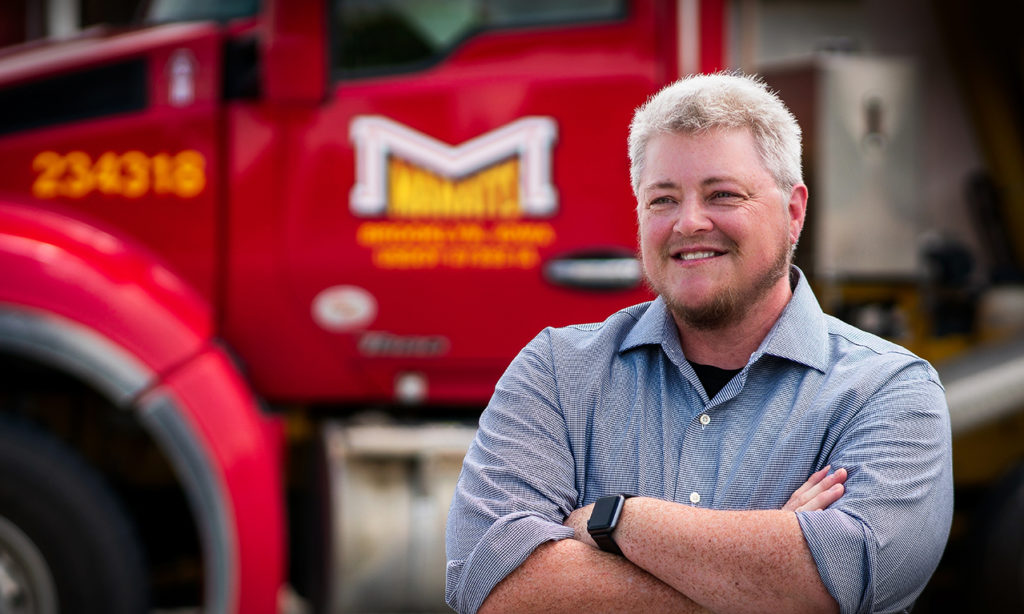
Bridger Moreland
Bridger is a 30 year IT veteran skilled in aligning with strategic organizational goals and currently serves as Chief Technology Officer at Manatt’s Inc. He builds teams that take on innovation with a valuable purpose. Bridger earned his MBA from Iowa State University and his compassionate leadership skills from a thing called life. He has an infectious enthusiasm for technology that he likes to share with anyone who will listen including his incredible wife, Kaye (who tolerates the geek speak), and their 5 children and 14 grandchildren. When not working, he loves to act like he is a singer and musician. He looks forward to retirement one day and working as a cashier in Bass Pro Shop for the company discount.
What is your background in the Iowa tech industry?
I’ve been in the IT field for just over 30 years, and in Iowa for the past nine. I’ve always been the in-between person, very business-oriented and focused on creating value with technology and finding new ways of doing things. I started off as a developer, but my degrees are in business.
I’m originally from Nashville, Tennessee where I ran my own business — I was a CTO, then a CIO. I’ve done a lot of consulting for small- and medium-sized businesses. That’s where my passion is, working with smaller businesses where you can really make a difference. I really loved the mindset and acceptance of people here in the Midwest, so when I was offered a job at the Federal Home Loan Bank of Des Moines, I took it. I worked on the operational side there for about six years before my wanderlust led me to more consulting.
I like to travel quite a bit, so I did some executive consulting for a year. One of my clients was Manatt’s in Brooklyn, Iowa, and they asked me to come on after about four months of consulting. That’s how I found myself in a very cool small town with a company of big potential.
What does your current role as CTO at Manatt’s entail?
Being the best servant leader I can be. Manatt’s has a thirst to be a forward-thinking, innovative company, and they’ve been on a values-based leadership journey for about three years now. That’s what attracted me to them. I wasn’t ready to leave where I was before, but I got to know the owners and they really are living what they’re talking about. It was pretty exciting being able to come in and know that our values are aligned and I could make a difference.
You describe being CTO as “changing the hearts and minds and guiding those at Manatt’s into the next generation of tech-forward innovation.” Can you expand on that?
This job is a lot more about people and relationships than about fixing something on a computer, or developing, or security, or best practices. Any leadership role is about people to a certain extent, but when you’re in a shared service like IT, where you’re trained to support the business and do new things, it’s more about getting to know what people really do and then making them a part of solutions. Being collaborative like that, we enable each other.
Manatt’s has been around since 1947, and they’ve had the same values for a long time. They haven’t wavered from that, but how they do their job is different; things change. We have some very long tenured people here — 20, 30, 40 years — which says a lot. But when you’ve done things the same way for a long time, it does take a bit of influence to change minds. They know what they do very well and I can’t do it, but I’m here to help them be competitive for next year, not last year.
Once you get people open and willing to just think up things, I’ve found that those who actually do the work are some of the most innovative. We’re just here to help them along that journey. We’re partners.

What is the most significant change you’ve seen in regards to diversity and inclusion being a priority in the Iowa tech industry?
I think that’s a continuing challenge here. In the last decade there’s been a lot more acceptance for LGBTQ, but actively looking for people and trying to recruit them is the big thing. A lot of leaders have made great strides in reaching out and saying, “Hey, this is a really cool industry to be in. It’s creative. It’s scientific. It offers a lot of promise for the future.” But with Iowa’s demographics, it’s hard sometimes. IT is a very white, male-centered industry to start with.
I have seen more women going into leadership roles, which is great. And I’ve noticed that the language we’re using is less exclusive, too. We’re making an effort so people feel like they belong, which is awesome. I like to be a leader who influences those things as well.
When I’m recruiting, I look everywhere. For example, we’ve brought people in on the business analytics side who were just part of the business, doing their jobs. Even if they say they know nothing about technology, that doesn’t mean they don’t have what we’re looking for: If they’re bright, innovative, we can teach the how-to stuff. It’s character that we’re looking for.
When I met one team member, she was waiting tables at a truck stop. We got to talking, and she said that she used to teach computer classes at the community college. She was smart, had good experience, so I suggested she apply at Manatt’s. She’s been an incredible business analyst for us and is running three of our larger projects now.
Another employee we’re proud of migrated from Cuba. He was driving trucks for us, and one day he approached our IT booth at our employee fall meetings. We got to talking, and I learned that he had degrees in computer science and education from Cuba. I said, “Hey, come on over to IT.” He’s put his degrees and trucking experience to good use and is a very versatile systems analyst for the team.
Both of their stories are amazing. Bringing that kind of diversity of thought into the IT industry is great. It doesn’t pigeonhole people or an organization into a scenario where “we must do it exactly the way I learned at Iowa State/any other great college.” Sure, you’re going to have traditionally trained developers, analysts, and engineers; but you also want a nice blend of approaches and backgrounds.
If you want diversity, you must start by communicating. Everywhere. With everyone. Not just the typical recruiting opportunities. Be open, be interested, and learn about others’ stories. Then see if you can make those stories part of what you’re trying to do.
If you want diversity, you must start by communicating. Everywhere. With everyone. Not just the typical recruiting opportunities. Be open, be interested, and learn about others’ stories. Then see if you can make those stories part of what you’re trying to do.
How do you encourage innovation and idea-sharing on your team?
There’s quite a bit of open seating in our operations and development areas. This hasn’t been great with COVID-19, because I can only have so many people in that area right now — but for the most part it helps to have an open, collaborative type of a space where you’re expected to work together.
I also highly encourage paired programming. If we have a problem, we all swarm and talk about it — operations, security, development — everyone together. We also have daily stand-ups and weekly tech tool talks. I try to emphasize that we are one IT team, even though we all have our area of expertise, and we all try to solve problems together.
We have Friday Fun Days, where we set aside time to solve a problem — something small that we can blast through, learn from, and see what we can do together. This gives the junior people on my team a chance for some hands-on mentoring as well. The sessions usually rotate between team members coming up with the topic and picking something that’s outside the scope of what we typically work on. Right now, they’re playing with Raspberry Pi’s with LTE modules and figuring out how to track fuel out in the field. That’s turned into a full project that started working with kids learning technology in CoderDojo.
I also encourage my team to be continually learning. This is IT; everything is outdated by the time you learn it, pretty much. I say you should be spending at least 5 percent, minimum, of your time reading, participating in forums, taking classes, shadowing someone — whatever you need to do in order to learn. That’s expected of you as part of this team, fostering your own continual growth.
Tell us about any mentors that you’ve had and how they’ve influenced your career path.
I’ve had some awesome mentors, but some of the best were probably through church. They are the ones that taught me the meaning of being a servant leader. I think the one who influenced me most was Dr. Steve Flatt, a minister in Nashville. (He’s since moved on to be CEO of National Healthcare Corp.) His consistent patience and understanding, and his ability to meet people where they were, and respect them for where they were on their journey in life, made me realize that that’s the kind of leader I wanted to be. One who values a person’s story because what they have to say is important.
Probably my biggest influence, though, was my father. He was the guy I looked up to my whole life. He always had a relentless faith and an incredible sense of humor that kept things light, no matter what we were going through. To this day, I remember that even the worst-seeming things aren’t that bad. I try to keep that lesson in mind when there’s a server outage or a security incident. It’s IT; occasionally, there’s some chaos. But I try to stay calm and let my team know it will be alright. It’s not that big of a deal in the grand scheme of things. We’ll learn from it and get better.

Experiment and find a place that encourages that type of experimenting. It’s fun if you don’t hold back, but you do have to take some safe risks and learn from what goes wrong. IT is all about solving problems.
What advice would you give to a young person considering a tech career path or aspiring to be in a business leadership role?
Try it. Experiment and find a place that encourages that type of experimenting. It’s fun if you don’t hold back, but you do have to take some safe risks and learn from what goes wrong. IT is all about solving problems. There’s never one right way to do it, but you don’t know what will work until you try it — so don’t be afraid to put yourself out there and try different things. No matter what gifts you bring, there’s a place for you in the technology world. There are so many companies out there willing to bring you in as an intern or as a co-op, as young as high school or even junior high. Go shadow some people and see what it’s actually like; there are real people doing some really cool stuff out there.
Why is it important to have people of different backgrounds in technology?
Honestly, you can’t solve problems creatively if people think the same way. Being a transgender guy, my brain’s never been wired to think in the “normal” way I suppose. I’ve been told, “Well, you’re an interesting person. At least your ideas are creative.” I think I see things a little bit different. I make some different connections. I have a different perspective to see how pieces fit together.
If you get a group of people in the room who have a bunch of different experiences, that allows for a lot more connections to be made and for problems to be solved in more innovative ways. If we all grew up in the same place, attended the same schools, had the same experiences, and went to the same few companies, we’re probably going to have such aligned experiences that it doesn’t really help the greater good. Diversity is necessary in order to be extremely innovative.
I’m fortunate that Manatt’s truly values hiring people with different backgrounds and perspectives. When I first came on, before I even had a formal job offer, they knew everything I was going through in my transition journey. They changed to make sure that I was not only accepted by the company but was even covered by insurance. That’s the type of company they are. It’s not just saying, “We’re fine with who you are.” It’s more, “We’ll show you by supporting evidence.” They have my back like a family should.
How would you like to see talent development grow in Iowa with respect to diversity?
I would love to see more businesses get involved. One of the things I do through the community center is CoderDojo, which is an international program for young kids that lets them come, play, and experiment with solving problems. I’d like to see businesses do something similar with schools, adults, whomever. Unless you give people a chance to come in and see what you’re doing and that there are other career tracks out there, they don’t understand how or where they fit into tech. We need to reach out to more than just the typical computer science grads. We need to look in other venues and make the opportunities happen.
We talk about this shortage of qualified people all the time, but they’re out there. We just need to get creative on how we’re reaching people. I think we need to change our expectations a little bit and be willing to train those with potential. We don’t have a shortage of intelligent, creative people; we just need to think differently about qualifications.
I am a big advocate for education, but that’s not the only source of awesome people. We should be supporting kids who show an interest. And when we’re doing the college circuit, we should make an effort to talk to people who don’t look just like us. People come from different walks of lives. If you’re only comfortable around people who look just like you, odds are your team will wind up thinking just like you too, and that’s not a good thing.
You’d assume that Brooklyn, Iowa, would be the stereotypical “everybody grew up here, everybody still lives here” kind of small town. But it’s an interesting place. As someone who’s lived in different countries and traveled abroad for work, I’ve been in the minority in religion, race, and language, and I know what it feels like to be an outsider. I was almost expecting that same feeling coming to a small place like Brooklyn. Then I got here and it’s not like that at all. It’s like coming home. It takes people behaving intentionally to create that environment.
If you get a group of people in the room who have a bunch of different experiences, that allows for a lot more connections to be made and for problems to be solved in more innovative ways.

